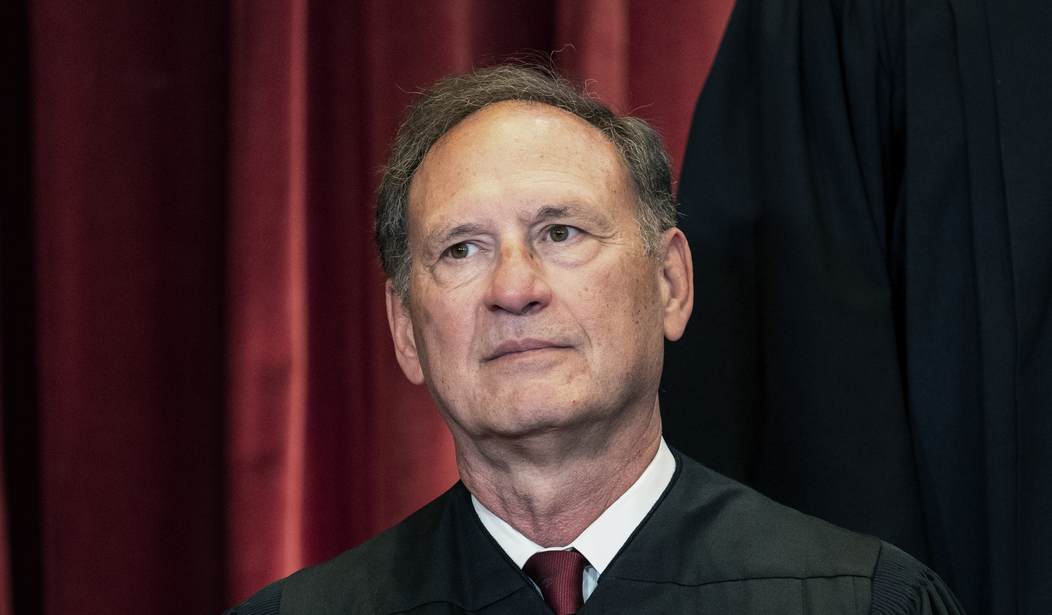Friday’s momentous Supreme Court decision overturning Roe v Wade has leftist politicians screaming, news anchors sputtering, and Twitter on fire, with both sides of the debate weighing in. All these loud voices, yet few of them seem to have read the opinion.
What does it actually say?
The final opinion was written by Justice Samuel Alito and is mostly similar to the draft that was leaked in May. The opinion ruled on Dobbs v. Jackson Women’s Health Organization, which centered on a Mississippi law that banned abortion after 15 weeks of pregnancy. Arguably the most important line in the ruling comes on the first page of 213-page pdf document (emphasis mine):
Held: The Constitution does not confer a right to abortion; Roe and Casey are overruled; and the authority to regulate abortion is returned to the people and their elected representatives.
Boom. Authority is returned to the people and their representatives. Where it should have been all along.
On page 4, in one of his most powerful paragraphs, Alito dunked on the 1973 court for “usurping power”:
Roe was on a collision course with the Constitution from the day it was decided, Casey perpetuated its errors, and those errors do not concern some arcane corner of the law of little importance to the American people. Rather, wielding nothing but “raw judicial power,”… the Court usurped the power to address a question of profound moral and social importance that the Constitution unequivocally leaves for the people.
Even “longtime defender of reproductive and women’s rights,” the late Justice Ruth Bader Ginsburg agreed in 2013 that the Roe was flawed:
She would’ve preferred that abortion rights be secured more gradually, in a process that included state legislatures and the courts… Ginsburg also was troubled that the focus on Roe was on a right to privacy, rather than women’s rights.
The problem with Roe all along is that it distorted the 14th Amendment’s right to privacy and expanded it to include abortion. Alito says:
In interpreting what is meant by the Fourteenth Amendment’s reference to ‘liberty,’ we must guard against the natural human tendency to confuse what that Amendment protects with our own ardent views about the liberty that Americans should enjoy. That is why the Court has long been ‘reluctant’ to recognize rights that are not mentioned in the Constitution.
Alito goes on to discuss the theory of life, soundly rebuking the dissenting opinion signed by Justices Stephen Breyer, Sonia Sotomayor, and Elena Kagan.
Our opinion is not based on any view about if and when prenatal life is entitled to any of the rights enjoyed after birth. The dissent, by contrast, would impose on the people a particular theory about when the rights of personhood begin. According to the dissent, the Constitution requires the States to regard a fetus as lacking even the most basic human right—to live—at least until an arbitrary point in a pregnancy has passed. Nothing in the Constitution or in our Nation’s legal traditions authorizes the Court to adopt that ‘theory of life.”
He’s rejecting the dissenters’ view that the Constitution regards a fetus as lacking even the most basic right. While he doesn’t specifically say that fetuses have rights, he’s certainly not willing to claim they don’t.
Many on the left, including the dissenting justices, are freaking out that Clarence Thomas, in a non-binding concurring opinion, wrote that the decision calls into question old cases like gay marriage and access to birth control.
Justice Clarence Thomas, in his concurring opinion overturning Roe v. Wade, fomented fears about what other rights could disappear: The same rationale, he said, should also be used to overturn rights to contraception and same-sex marriage. https://t.co/tMsDFDqmAI
— The New York Times (@nytimes) June 24, 2022
Alito’s opinion shut the door on revisiting old cases, though, flatly stating that “nothing in this opinion should be understood to cast doubt on precedents that do not concern abortion.”
It’s a powerful opinion, one which is greatly overdue, rights a legal wrong, and hands back power to the states—where it should be. Thank you, Justice Alito.














Join the conversation as a VIP Member